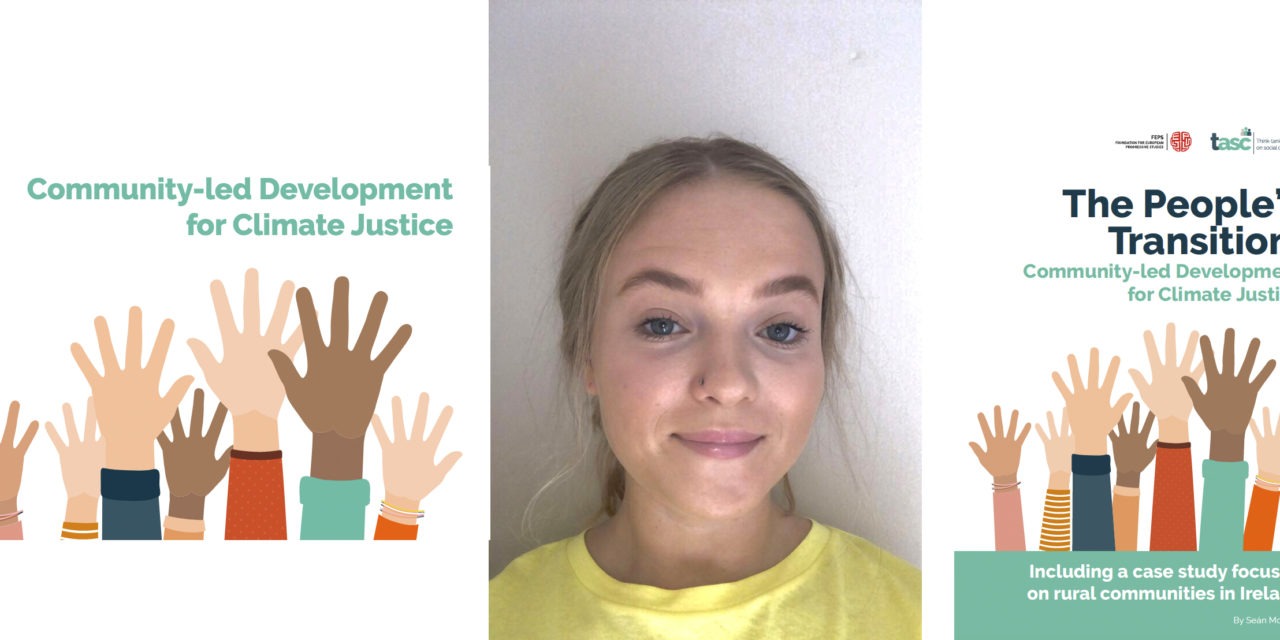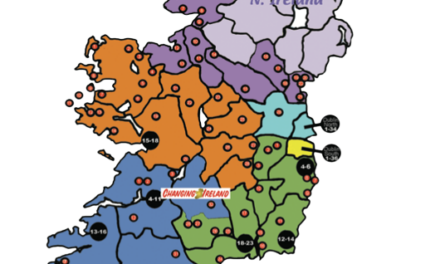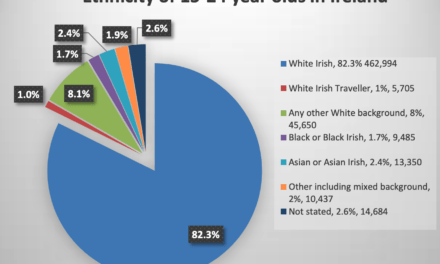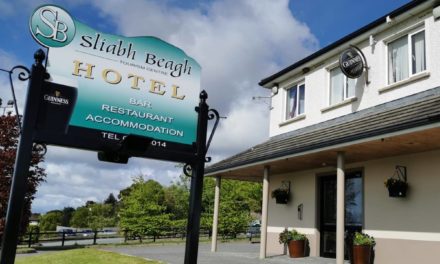What’s it like looking to the future of community development through youthful eyes?
Beth Ardill, a Community Development undergraduate gives her views on a new report from Tasc that focuses on “Community-led development for Climate Justice”. Her interview with Allen Meagher is here; her written report below.
For a review of Tasc’s report by Davie Philip, an experienced community development worker based in Cloughjordan, read this: https://www.changingireland.ie/the-peoples-transition-sings-of-bottom-up-development/
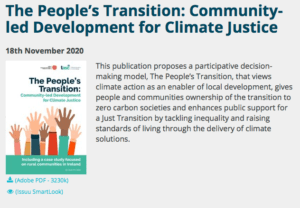
To download the report itself, visit: https://www.tasc.ie/publications/the-peoples-transition-communityled-development-fo/
BETH ARDILL ON ‘THE PEOPLE’S TRANSITION’:
As a community development student, it is great to see the bottom-up approach being used as it is one of the best ways to go about community work. It is important for communities to have a say in any decisions, especially decisions that affect their community on issues such as climate justice. Involving everyone in the community brings people together, it makes people feel involved and for them to know they that were involved in the decision-making brings them a sense of inclusion.
“‘The People’s Transition’ proposes an approach to climate action that puts communities and local development at the heart of Europe’s Just Transition.” – This quote got my attention as it is important to have communities and local development at the heart of the Transition and climate change is affecting every community and local area.
The report talks of “…the bottom-up component of the European Green Deal which seeks to give everyone a voice and a space in which to design new climate actions, share information, launch grassroots activities and showcase solutions that others can follow”.
This also caught my attention as giving every individual in communities a voice is important; it can make people who have been marginalised from their community feel involved again.
In my opinion, the community-led approach points to a fairer future as everyone is involved in the decision-making, everyone’s opinions are considered. Nobody is left out or is made feel that their opinion does not matter in this approach.
This will require more community workers. Groups could be set up to discuss with the community what is happening and inform them on everything they need to know, and to hear their opinions and ideas. This approach requires more time, but it is more rewarding knowing the community as a whole is involved.
I would love to be involved in bottom-up development in the future, especially with issues such as climate change – it is a serious issue and everyone needs to be involved for change to happen.

